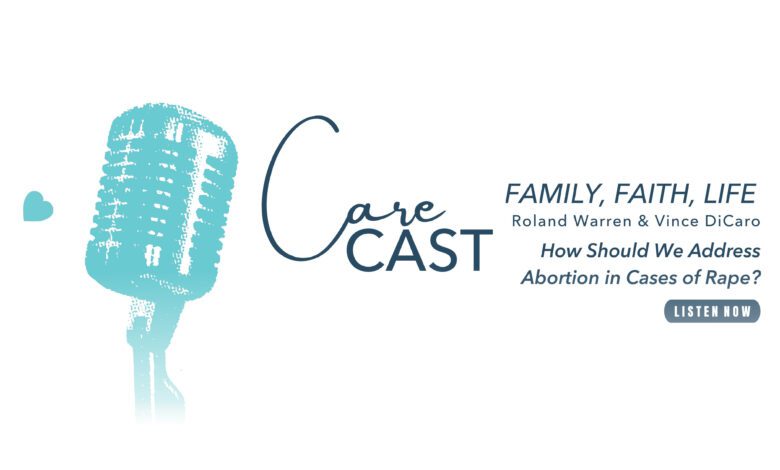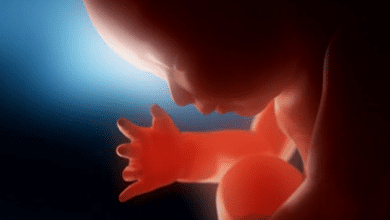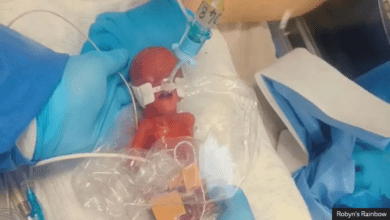How Should We Address Abortion in Cases of Rape?

In abortion, our goal should always be to give the most compassion to the most vulnerable. At any given time and situation, this may seem simple. But it is not easy. For example, how should we address the complex issue of abortion in rape cases?
This is not an easy topic to discuss at any length. That’s why we decided to address it. CareCast is Care Net’s podcast on family, faith, and life with Roland Warren, President and CEO of Care Net, and Vincent DiCaro Care Net’s Chief Outreach Officer. Let’s hear what Roland and Vince have to say in the latest CareCast as they discuss the issue in detail.
Want to hear the podcast?
Find full access to the latest episode of CareCast.
The link above sends you to SoundCloud, you can also find us at iTunes and Spotify.
How We Should Address Abortion in Rape Cases
This issue is not simple. It often focuses on the issue of abortion. It’s hard to sort out exactly how to deal with it. Recently, a story came out of a pro-life activist who confronted Canadian Prime Minister Justin Trudeau and asked him about his defense of abortion.
Prime Minister Trudeau responded as many pro-choice activists often do. He said, “Well, do you think a woman who is raped should have access to an abortion?” The pro-life student who asked the question replied, “Well, I’m kind of split on that.” Trudeau walked away, leaving the question.
Don’t you feel the tension on this issue? We often see that when a pro-choice activist brings up abortion in the case of rape or incest, it seems to shut down the argument and the pro-life side seems to have no answer. We are left unsure of how to resolve issues in a way that is helpful, compassionate, and shows grace and mercy to all parties involved. As Roland and Vince dig deep into this issue at episode of CareCastI want to touch on 3 questions to consider on the issue of abortion in rape cases.
3 Questions to Ask for Responding to Abortion in Rape Cases
Question #1: Why do pro-choice activists seem to think abortion is the only appropriate decision in rape cases?
First, as someone who loves his mother, his wife, and his two daughters, I understand that this is not easy to imagine. As Roland and Vince point out in the episode, the thought of any woman being raped is difficult to contemplate and we should have the utmost sympathy for anyone faced with this type of situation.
That said, the Trudeau exchange is a classic example of casting rape as the abortion-argument-trump card. What are pro-choice activists trying to do when they bring up this example? And how should a pro-life person respond?
Some pro-life activists will take issue with the statistics. We know that less than one percent of abortions occur from rape cases.
But, when you say that out loud, it rings true, right? It feels no pity to say, “Well, statistically, it’s not that big of a deal!” Try telling that to a rape victim. It might be 1%, but to him, it’s 100%. It is simply not compassionate or sensitive to those facing this issue to talk about statistics.
This is where Roland and Vince do a great job of delving into the issue. They discuss in detail why rape is so bad; that is, rape is a horrible act because it is a powerful person taking advantage of and abusing a vulnerable victim. So, it seems easier not to focus on the unborn child but to focus on the woman. Argument over, right?
Well, here’s what we found. Roland explained that often, a woman who chooses to bring her child into the world after she has been raped refuses to allow the rapist. bring him back to her. Yes, he used his power against her when she was weak. However, there is a point where he often decides, and refuses, to let it bring him back to him. So, instead of making an act with the same power dynamic – using his power over the vulnerable unborn child in his womb — he brings the child into the world.
The woman who decided to have a child decided, “No, you will not use your power against me. You took advantage of me when I was weak. But you cannot extend your power over me to abort.” In essence, many women, no matter how difficult the situation, are not interested in creating another victim—turning the unborn child into a second victim.
Question #2: Will the baby remind the woman that she was raped forever?
In other words, yes, the baby will remind the woman of the rape for years, possibly forever. But shouldn’t we ask, who will remind the woman more of the rape—the rapist or the baby?
The answer, of course, is the rapist. So, should we compassionately move on to what good can come from rape? That’s not easy to type or ask. At first thought, you might say no. But we know that every person, including the unborn child in the womb, is created in the image of God.
For the mother who gave birth to a child as a result of rape, God helps her to see that baby as the joy of her life. I can’t pretend I have the perfect answer here, but the point is to work toward being compassionate and consistent. And we must not let injustice prevail. That’s why it is forbidden for a rape victim to kill her rapist even if he reminds her of the rape. A rape victim cannot sit on a jury. He cannot be a judge. Why is that? Because we try to work towards justice. Even if he is violated, our justice system takes the decision out of his hands. And while those convicted of rape often face serious prison terms, they are not usually given the death penalty. So why are we so quick to give the unborn child a death sentence through abortion?
Question #3: Do circumstances of birth determine a person’s worth?
In an exchange with Prime Minister Trudeau, if the student had time, he could ask Trudeau, “Do the circumstances of your conception and birth determine your worth?”
Think about it: the Prime Minister’s argument is, “Yes, the circumstances of your conception and birth determine your worth.” If you are conceived in love, you have value. If you are conceived in lust, you are worthless.
Don’t miss this plot: if the circumstances of your birth determine your worth, then a child born to rich parents has more value than a child born to none. God says otherwise. He said we were created in His image; that the circumstances of our conception and birth do not determine our worth.
We must be clear, no matter how horrific the rape, we must act from a perspective of justice and mercy for each situation and each life involved. God has made it clear that all life is worthy of protection and that the circumstances of a person’s conception should not determine their worth.
We must ask ourselves, even in the case of rape, how can we share compassion? We must always relate compassion, vulnerability, and power and, in every situation, ask, “Who is more powerful? Who is weaker?” Then, try to give the most compassion to those who are most vulnerable.
Listen to full CareCast podcast for more details on all these arguments.
Can’t find the podcast?
Here’s your full CareCast episode.
No SoundCloud? Find this episode at iTunes and Spotify.






